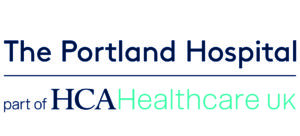Why is my child having a hemi-nephrectomy?
Reasons why your child may need to have all or just part of their kidney removed:
What happens before the operation?
Your child will be seen in COPD by their Consultant to discuss the operation.
You will be contacted by our Urology Nurse or the pre-assessment nurse 4-7 day prior to admission in our ‘pre-operative assessment clinic’ or over the phone. This will ensure you have all the relevant information you need before the day of the operation.
What happens when my child is admitted to hospital?
Your child will be seen by the nursing team, Consultant and the Anaesthetist.
The Anaesthetist will review your child’s general health and discuss the anaesthetic care plan.
Usually a urine specimen will be collected from your child before the operation and blood tests may also need to be performed. Where possible these specimens will be collected during the pre-operative assessment clinic visit but if not these tests will be completed on the morning before surgery.
You will be able to be present while your child goes to sleep for their operation and also in the recovery area when your child wakes up.
What happens during the operation?
The operation will be carried out under a general anaesthetic.
A hemi-nephrectomy may be undertaken as an ‘open’ operation or using ‘keyhole’ surgery laparoscopic. There are different reasons why each type of operation is chosen and your surgeon will discuss the choice of operation with you and the reasons that apply to your child.
During ‘open’ surgery an incision (‘cut’) will be made, usually on the child’s side. The affected part of the kidney is removed and then dissolvable stitches are used to close the wound. Paper tapes (‘steri-strips’) are often also applied but usually there is no large dressing.
During keyhole surgery, a telescope is used, with a miniature video camera mounted onto it, this is inserted through a small incision (cut) to see inside the abdomen.
The operating instruments are used to mobilise (‘free up’) the kidney or affected part of the kidney and then remove it. Sometimes it is necessary to make one of the keyholes a bit larger to remove the kidney or affected part of the kidney. Once the kidney or affected part has been removed the keyhole incisions are closed with dissolvable stitches.
Whether open or keyhole surgery is undertaken, occasionally one or more small tubes (called ‘stents’ or ‘catheters’) will be left in place after the operation to drain urine. These tubes can be removed with ease on the ward by our urology CNS once they are no longer needed.
What are the complications/risks?
What happens immediately after the operation?
How long will my child stay in hospital for and can I stay with him/her?
The length of stay will depend on each individual child but the average length of stay is two to five days. A parent will be able to remain resident on the ward in a bed at the side of the child’s bed.
How do I look after my child at home?
Follow up
Your child will have an outpatient appointment to provide follow up, usually three months after discharge.
For further information, please contact
If you have any questions or problems either before or after the surgery, please do not hesitate to contact Nasra Ahmed, Complex Surgical/Pain Lead Nurse, on 020 7580 4400, 10838 (09:00 – 17:00 Monday to Friday) or email at: [email protected]
For Out of hours: Contact our Paediatric Site Practitioner via the switchboard on: 02075804400 ext: 10843
